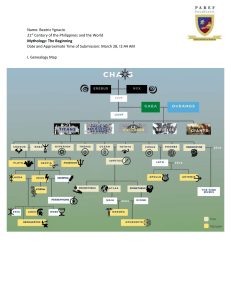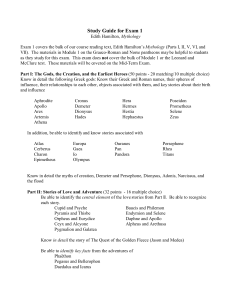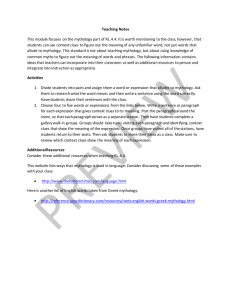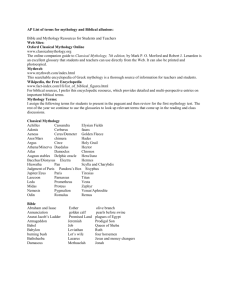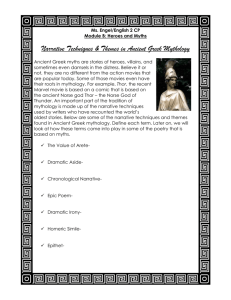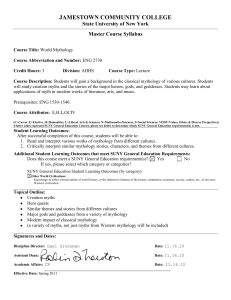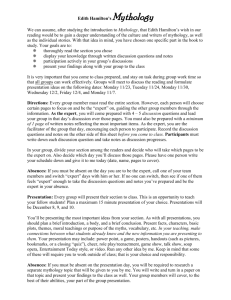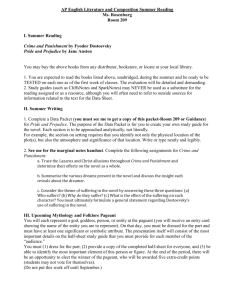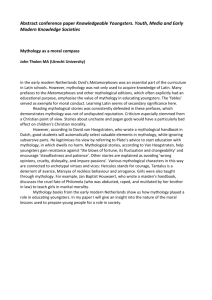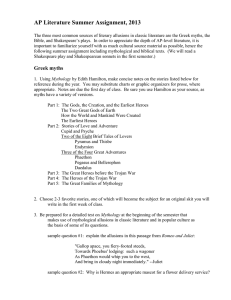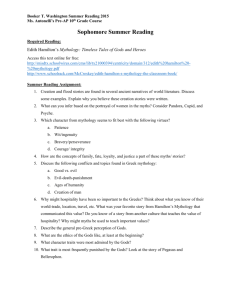World Mythology - Chabot College
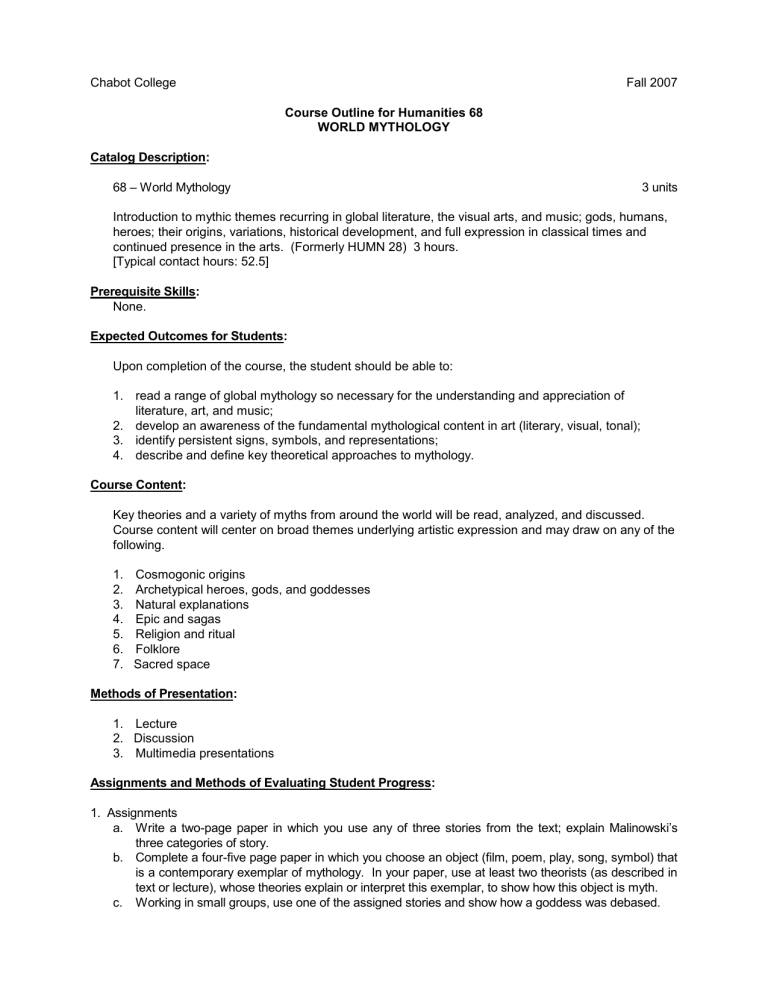
Chabot College Fall 2007
Course Outline for Humanities 68
WORLD MYTHOLOGY
Catalog Description:
68 – World Mythology 3 units
Introduction to mythic themes recurring in global literature, the visual arts, and music; gods, humans, heroes; their origins, variations, historical development, and full expression in classical times and continued presence in the arts. (Formerly HUMN 28) 3 hours.
[Typical contact hours: 52.5]
Prerequisite Skills:
None.
Expected Outcomes for Students:
Upon completion of the course, the student should be able to:
1. read a range of global mythology so necessary for the understanding and appreciation of literature, art, and music;
2. develop an awareness of the fundamental mythological content in art (literary, visual, tonal);
3. identify persistent signs, symbols, and representations;
4. describe and define key theoretical approaches to mythology.
Course Content:
Key theories and a variety of myths from around the world will be read, analyzed, and discussed.
Course content will center on broad themes underlying artistic expression and may draw on any of the following.
1. Cosmogonic origins
2. Archetypical heroes, gods, and goddesses
3. Natural explanations
4. Epic and sagas
5. Religion and ritual
6. Folklore
7. Sacred space
Methods of Presentation:
1. Lecture
2. Discussion
3. Multimedia presentations
Assignments and Methods of Evaluating Student Progress:
1. Assignments a. Write a two-page paper in which you use any of three stories from the text; explain Malinowski’s three categories of story. b. Complete a four-five page paper in which you choose an object (film, poem, play, song, symbol) that is a contemporary exemplar of mythology. In your paper, use at least two theorists (as described in text or lecture), whose theories explain or interpret this exemplar, to show how this object is myth. c. Working in small groups, use one of the assigned stories and show how a goddess was debased.
Chabot College
Course Outline for Humanities 68, Page 2
Fall 2007
2. Methods of Evaluating Student Progress a. Evaluation of classroom preparation-assignments b. Short identification and recognition quizzes c. Short analytical essays demonstrating insights into the broader issues and relationships d. Research paper e. Final exam/project
Textbook(s) Typical:
Introduction to Mythology: Contemporary Approaches to Classical and World Myth, Thury and Devinney,
Oxford University Press, 2005 or most current edition.
Special Student Materials:
None
PDS:kh Hum 68
Revised: 11/17/06
